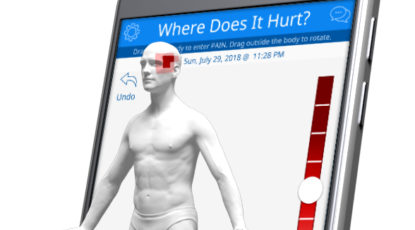-
New ways to help older adults self-manage pain
Providing underserved older adults with mobile health tools and the support of community health workers to help navigate local resources could help them better manage their pain, researchers say.
-
The nature of pain: Approach brings relief without opioids
U-M launches an outreach program to teach clinicians more about the different types of pain and approaches to relief that are nonaddictive and more effective than opioids.
-
Despite DEA limits on opioids, prescriptions still rose
Study finds post-surgery opioid prescriptions increased, despite drug policy designed to curb them.
-
U-M startup launches 3D app that puts pain on the map
Precision health tool allows patients to “paint” their pain on anatomically accurate 3D models using a phone or tablet.
-
Treating pain without feeding addiction
Study shows promise of non-drug pain management, combining behavioral therapy and social support.
-
Brain scans reveal first objective measure of pain
Scientists have identified how much pain people feel by looking at images of their brains. The research may set the stage to objectively measure anxiety, depression, anger, and more.






